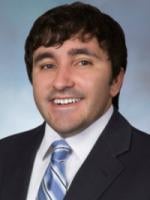The U.S. Court of Appeals for the Fourth Circuit missed an opportunity earlier this month in United States ex rel. Michaels v. Agape Senior Cmty, Inc., No. 15-2145, 2017 WL 588356 (4th Cir. Feb. 14, 2017), to provide clarity on one of the hottest issues in FCA litigation—whether an FCA relator may use statistical sampling and extrapolation to establish FCA liability. Courts frequently permit the use of statistical sampling to establish damages in FCA cases where liability has already been established. Applying the method to the question of liability, however, remains highly contested, given that courts have long held that the False Claims Act requires a relator to prove the falsity of each claim submitted for payment and the resulting damages. While a number of district courts have faced this question—and have reached different conclusions on its propriety, especially since the District Court for the Eastern District of Tennessee’s decision in United States ex rel. Martin v. Life Care Centers of America, Inc., 114 F. Supp. 3d 549 (E.D. Tenn. 2014)—no appellate court has ruled on the issue. With the Fourth Circuit’s decision—or lack thereof—relators, federal healthcare program providers, and the FCA bar continue to await guidance.
In Agape, the relators—former employees of the defendant, an operator of a network of nursing facilities in South Carolina—filed an interlocutory appeal to the district court’s denial of their request to:
- examine a random sample of claims submitted by the defendant to federal healthcare programs for services that the relators claim were not provided or were not medically necessary;
- have their experts assess those claims for falsity; and then
- extrapolate their findings to a universe of more than 50,000 claims.
The relators contended that this approach would allow them to avoid the significant expenses associated with an individual review of the patients’ medical charts, which could be subject to medical necessity defenses. In denying the request, the district court acknowledged that while statistical sampling may be permissible where evidence of falsity is unavailable, it was not in this case because “nothing has been destroyed or dissipated. . . . The patients’ medical charts are all intact and available for review by either party.” Recognizing that this decision could determine the outcome of the litigation, the district court certified the question for interlocutory appeal. The Fourth Circuit, however, side-stepped the statistical sampling question, holding that the interlocutory appeal on that question had been improvidently granted, as it did not present a “pure question of law that is subject to [the court’s] interlocutory review.”
The Fourth Circuit’s avoidance of the statistical sampling issue leaves considerable uncertainty for both relators and healthcare provider defendants. On the one hand, the district court’s opinion remains on the books, thus bolstering healthcare provider defendants seeking to contest attempts by relators or the government to use this methodology to prove FCA liability—especially where evidence is available to assess each claim on its own. On the other hand, the lack of appellate guidance means that district courts can continue to use their discretion, on a case-by-case basis, to determine whether statistical sampling is appropriate. Healthcare provider defendants, therefore, must continue to be prepared for such arguments and watch closely for developments in this area.



 />i
/>i
